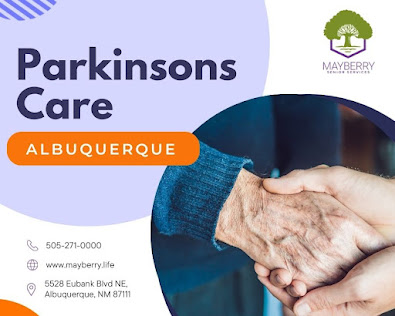If one of your close
relatives—say, your mother or older sister—has or had dementia care Albuquerque NM, you may wonder
whether the disease will strike you.
Your concern is valid.
Researchers have found that having a first-degree relative with Alzheimer's
disease, the most common form of dementia, makes you nearly twice as likely to
develop the disease compared to someone whose close relatives do not have
Alzheimer’s.
Genes and age play a role. So do
lifestyle choices such as exercise, diet, smoking and social activity.
With an estimated 6.7 million
Americans age 65 and older living with Alzheimer’s Care Albuquerque,
anxiety about the disease remains high. Yet there are ways to lower your risk
and delay the onset of dementia—or potentially avoid getting it in the first
place.
“If you know you’re at risk for
dementia, you can make changes now that the data shows can lead to a better
outcome 20 to 30 years in the future,” said neurologist Sarah Kremen, MD,
director of the Neurobehavior Program at Cedars-Sinai.
Which changes to make will depend
on your risk factors, Kremen said.
Read More: Most
Common Types of Memory Impacted by Alzheimer's
What risks can lead to dementia?
Age: Your risk of dementia
rises as you get older. Some dementias, such as frontotemporal dementia (FTD),
can start in your 40s or 50s, but most occur after age 65.
Genetics: Many genes have
been linked to dementia. For example, having a single copy of the gene variant
APOE-4 triples your Alzheimer’s risk. Having two copies boosts your risk up to
12 times higher than someone without the gene variant. But having a risk gene
doesn’t guarantee you’ll get the disease, Kremen said.
Family history: Both
Alzheimer’s and FTD tend to run in families. About 40% of those with FTD have
at least one relative with the disease. Like risk genes, your family history
influences—but does not fully determine—your chance of getting dementia.
Chronic diseases such as
cardiovascular disease, high blood pressure and diabetes raise your risk due to
their harmful effect on blood vessels in the brain.
Brain Injury: Dementia
risk is highest in the six months after a concussion or other brain injury.
Your risk of developing dementia increases with the number of brain injuries
over your lifetime.
Hearing loss in midlife is
associated with shrinkage of brain volume in the hippocampus and temporal lobe.
A study of 3,777 people found increased dementia rates in those with hearing
problems.
Social isolation: A review of studies involving 812,407 people worldwide showed that lifelong singles and those who lost a spouse had a higher risk of dementia compared to married people. Whereas a separate study of 13,984 adults over age 65 revealed that those who had social support such as friends, family and community groups were 46% less likely to develop dementia than those more isolated.
Other risks associated with
dementia include obesity and physical inactivity—which can lead to diabetes and
cardiovascular disease—as well as smoking, depression, sleep issues, lower
education level, alcohol intake and exposure to air pollution.
Assessing your risk for dementia
To get an idea of your potential
risk, list your risk factors and then “reflect on your current health status,”
Kremen said.
Do you have high blood pressure,
high cholesterol or diabetes? How’s your hearing? Get a physical and talk with
your primary care provider about your concerns. Act on the risks your doctor
says need attention.
Also consider your mental health.
“If you’re experiencing anxiety
or depression, see a therapist and, if needed, take medication for it,” Kremen
said. “Having a mental health issue increases brain inflammation, which
contributes to dementia care Albuquerque. It also can cause you to
isolate yourself.”
But don’t bother with genetic
testing.
“Genetics is part of the picture,
but it’s not the whole picture. Your genes contribute to only about 7% of your
total risk,” Kremen said.
Your doctor’s advice will remain
the same whether or not you have a dementia-related risk gene, she said.
Instead, focus on the risk factors you can change.
Read More: Tips
for Making Holidays Finer for Alzheimer's Caregivers
Reducing your dementia risk
A 2020 report from The Lancet
Commission identifies 12 modifiable risk factors and steps to reduce up to 40%
of your dementia care Albuquerque.
They include:
·
Lose weight, if needed
·
Stay physically and socially active
·
Quit smoking
·
Limit alcohol use
·
Prevent head injuries
·
Treat hypertension and diabetes
·
Challenge your brain
Some steps can be combined. If
you like to read, for example, join a reading club and you’ll challenge your
brain while staying socially active.
“There are so many things you can
do—eating a healthy diet, exercise, sleep, social and cognitive activity,” Kremen
said. “If you do them, it will change the arc of where you’re going.”
Source: https://www.cedars-sinai.org/blog/am-i-at-risk-for-dementia.html



